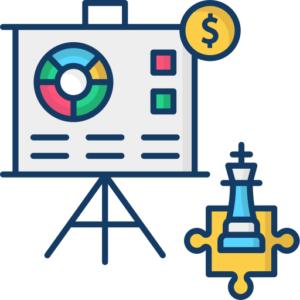When I was business developer at NEC Hong Kong, I ran the entire SOA-QPS business for them. This was no small market. Hong Kong Government created this program in order to have a lot of transparency in their purchasing process for IT projects. They have broken out the projects into four categories and for categories 2 (maintenance service) and 3 (system development) they broke these out even further between major and minor base on contract value. When I was doing the business, the former contract values range between $1.3 million and less than $10 million per contact. The latter is anything below $1.3 million. NEC played in major categories 2 and 3.
Roughly 2 to 4 tenders were introduced each month by various government departments that falls into my business. My job was to do the following:

Partner Ecosystem – Hong Kong Government provides such a wide variety of services, it takes a large partner network to try and tend to their needs. Obviously, the IT systems need of the Hong Kong Police Force are quite different from the Leisure and Cultural Service Department and both have big budgets to spend. I try to differentiate my partner networks from other prime contractors by extending my networks overseas that spans Europe and North America. However, their pricing is expensive so I also built a Greater China Region network of local HK and Mainland Chinese vendors.

Technical Presales (Solution Developer) – It is a bit rare to find a person with my combination of skills in Hong Kong. While you can find many who has dabbled in application development or network administration, few who go into IT front office has the hardcore application development and IT management experience as me. First, there are not a lot of software houses in Hong Kong. Second, those hardcore technologists working for FSI, logistics or entertainment companies usually don’t want to work on vendor side. This made me the key IT guy for NEC Government sales team. I was the one who would work with usually downstream partners to understand their solutions and figure out how to position them correctly in front of NEC’s clients. I have done many partner’s product demonstrations and work with their technical teams to gather requirements and customize systems for PoCs (Proof-of-Concept) testing.

Proposal Writer – I led in the creation of proposals to reply to tender opportunities. Working with my partner technical and sales teams, I wrote the technical and business proposals. The criteria for winning were based on a weighted average of 25% for the former and 75% for the latter. For those opportunities where we didn’t spec-in well our offerings, I try to differentiate by combining marketing techniques in my technical write-up. I also would need to negotiate hard with my partners on their pricing to me so that we can stay competitive in our bids.

Closer – As the prime contractor, it was my job to close on the client if the bidding got close. These were intense conversations on both technical and pricing aspects not only with the client but also with my sub-contracting partners. For most tenders, NEC will just inject a Project Manager and be part of the PMO (Project Management Office). Most of the services were done by partners and I needed to figure out how to cut price and SOW (Statement of Work) without jeopardizing project success.

Post-Sales Support – The project timelines were long for SOA-QPS projects. On the average, the SA&D (System Analysis and Design) stage would be around 3 – 6 months. The SI&I (System Implementation and Integration) stage around 9 to 18 months. A lot could go wrong with these types of projects and I was place as second line support to try and rescue projects using various means if the Project Manager couldn’t do it.
These experiences allowed me to develop a set of skills that would benefit either an in-house team or front-office team on vendor side. For the former, since I used to work for a vendor, I can put myself in their shoes and quickly come up with win-win scenarios from both business and technical standpoints. For the latter, my business development experience and technical know-how can quickly help drive your business forward in Hong Kong and across Asia.
Would you like to know more on how synergies can be found between us? Let’s Talk!



